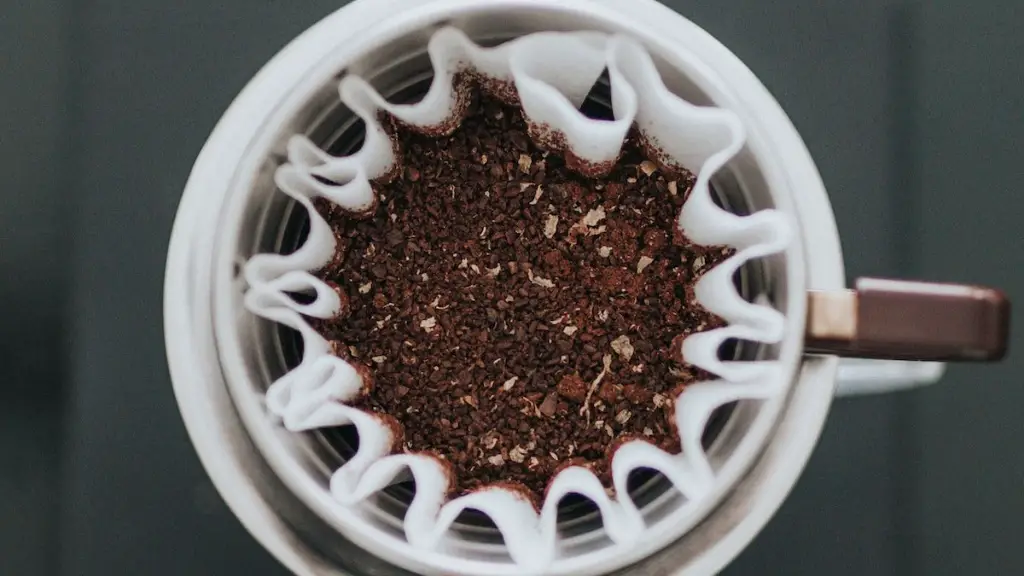Caffeine is one of the most widely consumed psychoactive substances in the world, and coffee is its primary source. Many adults start their day with a cup of coffee, but when is it appropriate for a young person to start drinking coffee? This question raises concerns about the effects of caffeine on the body and mind of children and teenagers.
According to the American Academy of Pediatrics, it’s best for teens to wait until they are 18 before consuming caffeinated drinks. The reasons for this, they say, are due to the body’s decreased ability to process the caffeine at a younger age, the potential for addiction and the side effects of drinking too much caffeine, including headache, insomnia, irritability, jitteriness and racing heart.
Most experts agree that it is not a good idea for children to drink coffee. Caffeine, like all other drugs, can be habit forming and can lead to dependency. In addition, if caffeine is consumed too early, it can interfere with the body’s natural development. Studies suggest that caffeine consumption in adolescence can lead to decreased learning ability, poor decision-making, anxiety, depression and substance abuse.
However, some experts point out that moderate consumption of caffeine is not necessarily a bad thing. When used in moderation, caffeine can act as a stimulant and help improve mood, focus and alertness. It can also enhance athletic performance in adults, and even in teens, if used sensibly.
Moreover, caffeine is also a great source of antioxidants and has been linked to lower rates of depression, heart disease, diabetes and certain types of cancer. There are, however, certain precautions that should be taken when consuming caffeine, especially when it comes to children and teens. For example, they should never consume more than 100 milligrams of caffeine per day, and they should never drink heavily caffeinated drinks such as energy drinks.
At the end of the day, it’s wise to heed the advice of medical professionals and wait until you’re 18 before consuming caffeine. Despite the potential benefits of moderate consumption, it is important to realize that caffeine can be habit forming, and its effects on younger people are still not fully understood.
Immune System
Recent studies have shown that caffeine consumption may improve the body’s ability to fend off infection. Caffeine consumption has been linked to increased levels of white blood cells and other immune system components, as well as increased levels of antioxidants. Coffee is also high in certain compounds, such as polyphenols, that have antimicrobial properties, helping to protect the body from viral and bacterial infections.
On the other hand, too much caffeine can suppress the body’s natural ability to fight off infection, so it is important to consume it in moderation. Experts suggest that no more than 400 milligrams of caffeine should be consumed in a day, as this amount has been linked to improved immune activity without any of the negative side effects.
Cardiovascular System
Caffeine is known to increase heart rate and blood pressure. This can be beneficial for those looking to get an energy boost, but for those with heart problems or high blood pressure, it can be dangerous. Teens and children are especially at risk for developing heart problems from excessive caffeine consumption.
While moderate caffeine consumption has been linked to reduced risk of stroke and other heart-related conditions, large doses of caffeine can cause arrhythmia, tachycardia and other heart palpitations. Therefore, it is important to practice moderation and closely monitor your heart rate and blood pressure when consuming caffeine.
Sleep
Caffeine can interfere with the natural sleep cycle, and teenagers are particularly susceptible to its effects. The body’s ability to metabolize caffeine slows down with age, and teens tend to be especially sensitive to its effects. Caffeine can also interfere with melatonin production, the hormone responsible for regulating sleep cycles.
It is recommended that those under 18 limit their caffeine intake to no more than 100 milligrams per day, and that it should not be consumed within six hours of bedtime. In addition, those who are sensitive to caffeine’s effects should avoid it altogether.
Nutrition
In addition to its potential effects on the body, caffeine is also calorie-free and can be used as a substitute for sugary beverages. Caffeinated drinks such as coffee and tea can help replace sugary sodas and juices, providing the body with a boost of energy without the added calories. Caffeine can also be used to suppress appetite, allowing those who are trying to lose weight to reduce their caloric intake without resorting to hunger.
Mental Health
Studies have suggested that moderate consumption of caffeine can provide a mental boost for teens and adults alike. Caffeine has been linked to improved cognitive performance, increased alertness and better focus. It can also help reduce stress, fatigue and symptoms of depression.
However, it is important to note that too much caffeine can have the opposite effect. Caffeine can cause anxiety, restlessness, irritability and even insomnia, so it is important to consume it in moderation.
Conclusion
Coffee is one of the world’s most popular drinks, and many adults start their day with a cup of it. However, when it comes to teenagers and children, it is best to steer clear of caffeine. While moderate consumption may have its benefits, the potential risks far outweigh them. While 18 is the recommended age for drinking coffee, it is important to note that everyone is different and their response to caffeine may vary.




